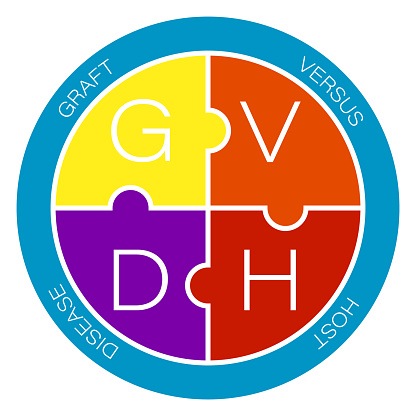
Less than half of patients in low-to-middle-income countries with severe chronic graft-versus-host disease (cGVHD) who received allogeneic hematopoietic cell transplantation (HCT) reach two years without experiencing failure-free survival (FFS), according to a study presented at the 2021 TCT Meetings of ASTCT & CIBMTR Digital Experience.
The researchers wrote that FFS “is a potentially useful, efficient, and robust measure to interpret results of initial systemic treatment of cGVHD.” They sought to assess FFS after initial treatment of moderate or severe cGVHD in patients who received HCT at 11 centers from a low/middle-income country—in this case, Brazil. They assessed 329 consecutive patients following their initial HCT between 2014 and 2018 who received initial systemic treatment for moderate or severe cGVHD at 11 Brazilian health centers. They used Cox regression models to identify risk factors for treatment failure.
According to the results, the median FFS was 12 months, with additional systemic treatment observed as a major cause of failure. The researchers observed only two risk factors significantly associated with treatment failure: less than six months from transplantation to initial treatment and a National Institutes of Health severity score of three in the liver, gastrointestinal tract, or lung.
“Our results show that slightly over half of patients on systemic treatment for moderate or severe cGVHD will be FFS at one year, and fewer than half of patients will reach two years without experiencing failure,” the researchers concluded. “Our study findings are similar to prior reports in North American population. Our results will serve as benchmark for future clinical trials of cGVHD in Brazil.”
Read more at: https://tct.confex.com/tct/2021/meetingapp.cgi/Paper/16543
Vigorito AC, et al. Chronic Gvhd Treatment in Brazil: Analyses of Failure Free Survival. Published for the 2021 TCT Meetings of ASTCT & CIBMTR Digital Experience; February 8-12, 2021.







 © 2025 Mashup Media, LLC, a Formedics Property. All Rights Reserved.
© 2025 Mashup Media, LLC, a Formedics Property. All Rights Reserved.